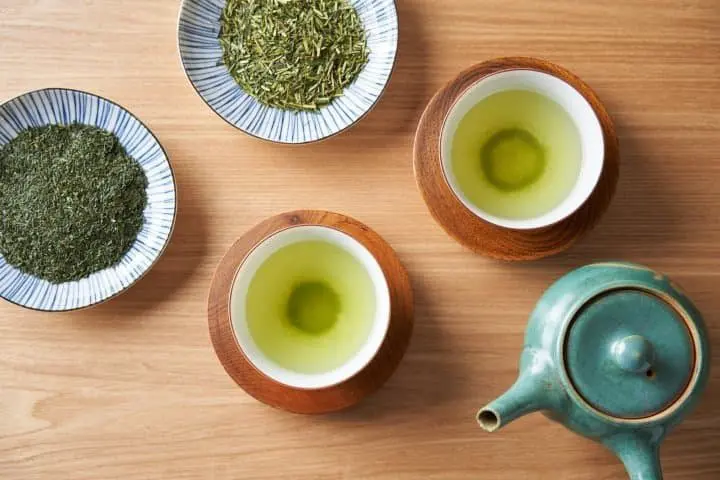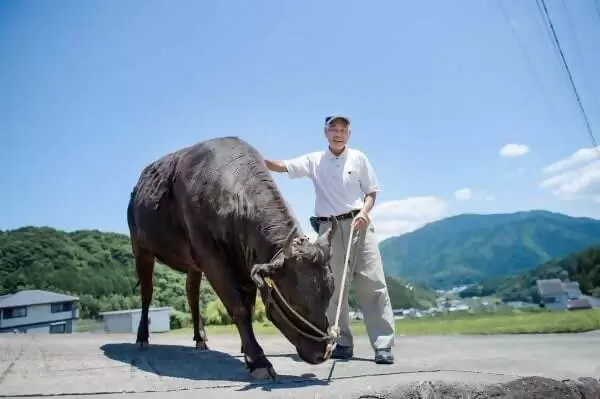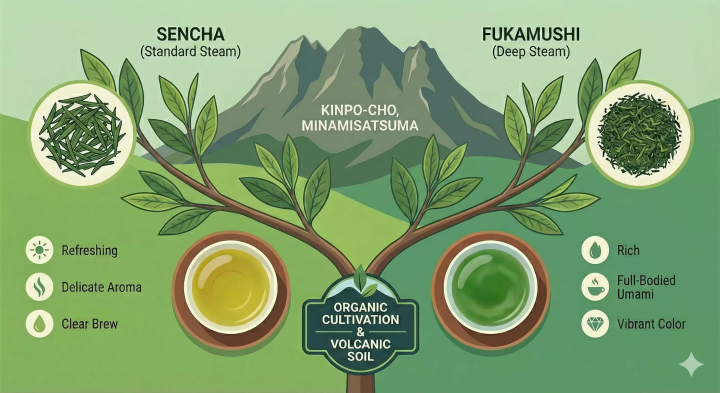Popular Japanese Tea Varieties - Enjoy Natural Sweetness

Japanese green tea is unsweetened and sold at convenience stores, vending machines, and supermarkets in convenient bottles. The lack of sugar allows you to savor the natural sweetness of the tea leaves. Drinking Japanese green tea is a delicious way to enjoy the food, culture, and history of Japan.
Types of Japanese Tea

Bottled tea is readily available for purchase at convenience stores and in vending machines, whenever and wherever you want a drink. However, you might be surprised at your first sip from one of these bottles in Japan.
It’s not sweet! In most cases, Japanese tea is unsweetened.
Bottled Tea in Japan: Unsweetened Japanese Tea

Tea sold abroad, whether it is black, green or jasmine, almost always contains sugar, honey, or some other kind of sweetener. In Southeast Asia, even bottles of tea labeled “sugarless” or “non-sugar” use sweeteners other than sugar, making them taste very sweet to the Japanese palate. It’s quite a shock to Japanese people, who expect unsweetened tea, to find that other countries sweeten their jasmine and green tea.
In Japan, tea, or "ocha" usually refers to green tea. Japanese green tea bottles contain no sugar or sweeteners. To Japanese people, green tea is a delicate flavor, and its depth and bittersweet taste are to be experienced with the original taste of the leaves.
A standard drink in Japan, green tea can be found in any home, office, or restaurant. Naturally, tea carefully brewed from leaves is delicious, but bottled tea has this original flavor as well.
When you come to Japan, you can easily sample bottled tea, but with so many varieties, which one should you choose? Even if you’re told that they are all green tea, you won’t know how they differ, and which one you’ll prefer.
Each tea maker is careful to draw out the “sweetness” of the tea. Let’s look at the different characteristics they focus on, along with the products.
Different Types of Bottled Tea in Japan

This is a lineup of tea typically sold at convenience stores and in vending machines. Itoen’s “O-i Ocha,” Kirin Beverage’s “Nama-Cha,” Suntory’s “Iyemon” and Coca Cola Japan’s “Ayataka” are all unsweetened green teas, but they each have their own unique flavor.
O-i Ocha

O-i Ocha has been on the market for over three decades and could be called the progenitor of bottled green tea. Released in 1990 as the world’s first green tea sold in a bottle, O-i Ocha has been the market leader in green tea drinks up to the present day, and any Japanese person will have heard of it. Through a careful proprietary manufacturing process, Itoen eliminates any sediments or impurities in the liquid. Only the tea itself is extracted. Due to that process, O-i Ocha has a very refreshing flavor. We recommend it for green tea novices, due to its clear taste.
Nama-Cha
Nama-Cha possesses the characteristically mild, refreshing and natural sweetness of the tea. It's produced by only using a combination of domestic high-grade Gyokuro green tea, a mild green tea that has been screened from sunlight, and deep-steamed green tea. Gyokuro is synonymous with high-class green tea, and is said to be most delicious when brewed with warm water at about 60 degrees Celsius.
Iyemon
The high-class Iyemon green tea was born from a collaboration between Suntory and Fukujuen, a tea processing industry veteran from Uji, Kyoto. With a strong flavor profile and a faint sourness, Iyemon is somewhat stronger than other brands of bottled green tea.
Iyemon uses only the finest tea leaves, carefully selected by the tea masters at Fukujuen. Made with a fine grind that activates the leaves’ sweetness, the result could even be used for powdered tea. The water is sourced from Yamasaki in Kyoto. The shape of the bottle, molded after a bamboo pipe and the other flourishes really shine from every aspect of Iyemon. It is surely a masterpiece. Boasting the largest market share at convenience stores, this popular tea even has a Cafe in Kyoto and its leaves are sold by themselves, too. Iyemon’s branding power doesn’t stop at its bottled products.
It is said that Iyemon was named after the founder of Fukujuen, Iyemon Fukui.
Ayataka
Ayataka is a late addition to the bottled tea scene, with a flavor developed to appeal to the Japanese palate. It was conceived around the idea that “what Japanese people really want is green tea with cloudiness and a taste that feels as though it came from a teapot.” Nama-Cha and Iyemon also have cloudiness, but Ayataka even contains particles of tea that sink to the bottom of the bottle. Be sure to shake it before drinking.
In cooperation with Kanbayashi Shunsho, a long-standing tea shop in Uji, Kyoto, Ayataka uses only certified tea leaves and Uji green tea. Ayataka’s name is derived from the high-quality green tea which was sold at Kanbayashi Shunsho. The tea is thoroughly brewed at a low temperature to draw out the sweetness of the tea, and the mellow taste feels as though it dances on the tongue.
The cloudiness at the bottom of the bottle comes from particles of blended green tea. If you shake the bottle before drinking, the flavors contained within the particles will mix in with the rest of the tea.
Drink a Variety of Japanese Tea Bottles and Find Your Favorite
Even if you sum it all up as “green tea,” there are all sorts of tastes and different ways of extracting those flavors. Isn’t it amazing that you can sample all of these carefully brewed green tea varieties for just 150 yen a bottle?
If you become able to taste the faint sweetness of unsweetened green tea, then you will be one step closer to become a Japan expert!


































![[Kagoshima] Overcoming 12 Years of Hardship: Walking through Minamisatsuma City, the sacred land where the monk Ganjin landed](https://resources.matcha-jp.com/resize/720x2000/2026/02/21-259481.webp)



